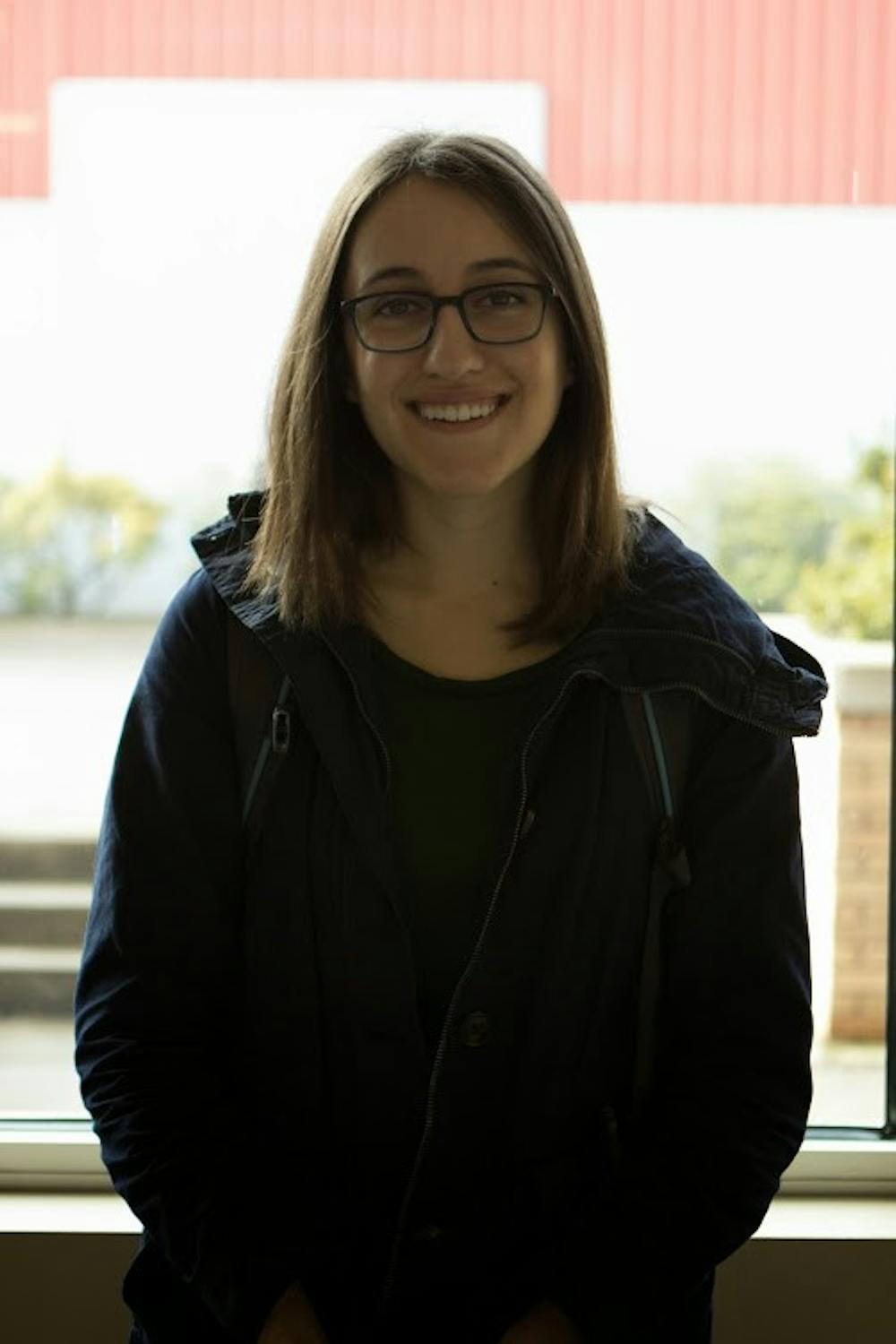Clare Duffy |
While many seniors are in the midst of searching for careers, applying to graduate school and deciding if they’re going to move back home or strike out on their own after graduation, Patrick Throckmorton and Sophie Anderson already have the next two years mapped out. Both have been nominated to serve with the Peace Corps for two years – Throckmorton in Cameroon and Anderson in Guatemala.
“I’m at a point in my life where I need to do something big and drastic to change the way that I approach the rest of my life,” Throckmorton said.
Past Peace Corps volunteer Andrew Bernhard came to campus on February 13th to speak with other interested UP students about the ups and downs of his service experience. Bernhard worked in Zambia doing rural education development for two years. He told stories of bonding with Zambian school children, traveling through Africa and being immersed in an entirely new culture, as well as the harsher realities of working in international service and development.
“I think it can produce a lot of resentment and struggle, but at the same time I think it’s real and that’s what we need as Americans,” Bernhard said. “We need to be woken up and we need to see the reality of what other people are experiencing and what’s going on and what our government is doing.”
Attendees of Bernhard’s speech ranged from freshmen who were already interested in exploring the Peace Corps as a post-graduation option, to older students looking to apply to volunteer with the Peace Corps or to better understand how to support friends going through the process.
Freshman education major Emily Gast was one of these students.
“I have had an ongoing interest in travel and service, and I thought learning about the Peace Corps would be a good way of continuing that,” Gast said.
Already on the path to becoming a volunteer, Throckmorton, a biology major on the pre-med track, will likely be working with new mothers and babies in a health center in Cameroon. He is looking forward to this service experience as an opportunity to hopefully reinforce his future plans.
“It’s always been one of my life goals to get to a position where I can work with populations in need, especially in other countries,” Throckmorton said. “I’m really interested in Doctors Without Borders and programs like that, so I think I’m using this as an opportunity to experience that and see if that’s a direction I really want to go.”
Unlike Throckmorton, who applied with no expectation of where he would be placed, Anderson entered the process knowing that she would likely be placed in a Spanish-speaking country, due to her Spanish minor. She has been nominated for a youth development program in Guatemala.
“The majority of my motivation for doing it was travel. I did the Salzburg year program and spent a summer in Chile, so I’m hoping to get a more professional travel experience,” Anderson said.
As a social work major, she expects the education she has received at UP to play well into her service experience. She, like Throckmorton, also hopes it will steer her in the direction of a path to pursue when she returns from the Peace Corps.
“I think having an experience like this will help me explore some options (for continuing my education), so whatever I end up choosing, I’ll know that I’ve thought about it a lot and I’ll have had an experience that inspired me to do graduate studies,” Anderson said.
Bernhard supported the idea that the Peace Corps can be a good way of discovering what one’s future path ought to be.
“I am now studying speech pathology at PSU, which isn’t something I thought I’d be doing before I went into the Peace Corps,” Bernhard said. “Learning how to teach English to the kids in my village helped me to realize that this was could be a career and was something I wanted to do.”
“Many students go into cruddy jobs right after graduation,” Assistant Director of the Moreau Center Pat Ell said. “Post-grad service organizations are like jobs, so why not do an awesome job?”
Ell urges students to look into the plethora of options for post-grad service, as the Peace Corps is only one of many and may be a better fit for some students than others.
Bernhard’s presentation was organized by Mehling Hall Service Justice Coordinator junior Carissa Luebbering.
“I think it (hearing Bernhard speak) was valuable because a lot of times people don’t think about the fact that there’s a world outside of our own community,” Luebbering said. “There’s a whole world out there that is so different from our own culture.”
Steps to becoming a Peace Corps volunteer
1. Fill out an online application
2. Interview with a local recruiter
3. After the interview, recruiters nominate fitting applicants for specific programs, which the applicant can then begin to prepare for. However, due to the competitive nature of the application process, a volunteer’s location is not always certain until they arrive there for training.
*for more information, see peacecorps.gov








